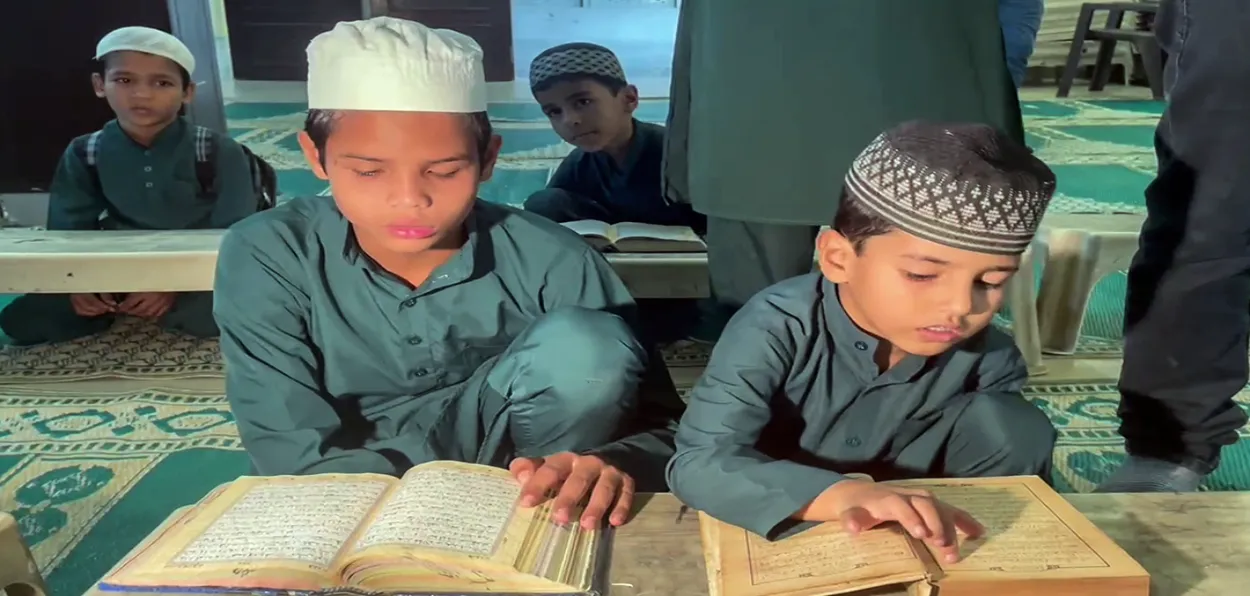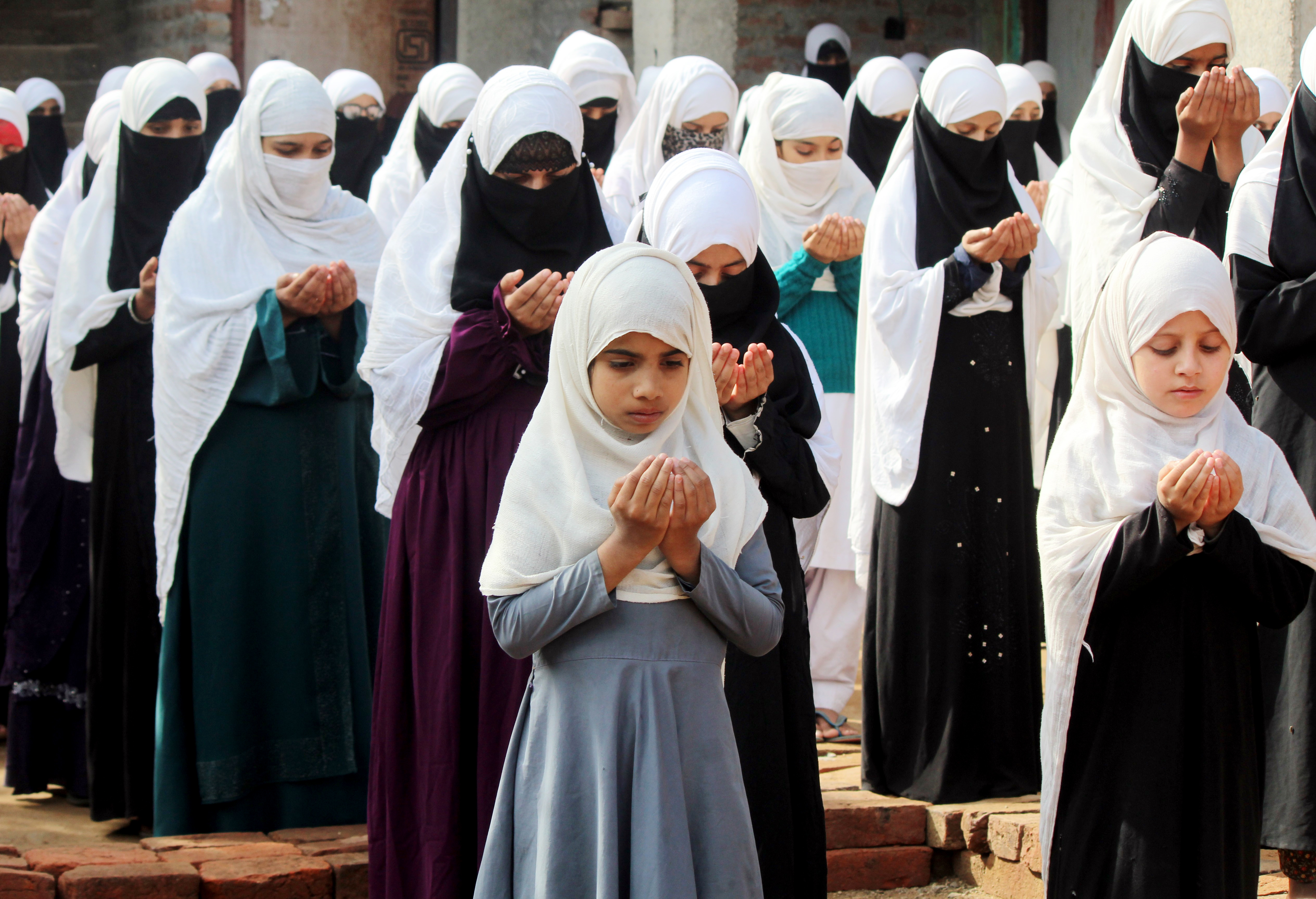
Eman Sakina
The development of any nation depends on its educational system; education is essential for social transformation, human advancement, and personal empowerment. It aids in fostering self-assurance in both individuals and communities regarding their innate abilities and talents to influence their lives and strengthen their inner power.
Friday Musings
Historically, civilizations have used education to transition from oppression to democratic engagement and participation.
A large population of Muslims in India are receiving education either from Madarsas or from Urdu-medium schools. Madarsa is an Arabic word that means an educational institution. They were never limited to providing only religious education. Down the line somewhere this concept changed and Madarsa became the centre of religious education only. Nowadays marginalized Muslim communities are increasingly demanding more quality education from their Madarsa.
Madarsas are centres of free education. They are the nucleus of the cultural and educational life of Muslims. These Madarsas, as an invaluable instrument of traditional education, have played a vital role in spreading literacy among the downtrodden segments of Muslim society. Only the poor Muslims are resigned to sending their children to Madarsas as these offer them free education, boarding and lodging.
Over centuries, madrasas have played a crucial role in the education, cultural preservation, and social empowerment of the Muslim community in India.
Madarsa education plays a central role in preserving Islamic identity among Indian Muslims. By focusing on Quranic studies, hadith (Prophetic traditions), and Islamic jurisprudence, madarsas instill a sense of religious consciousness and community belonging. This identity is especially valuable for Muslims living in a diverse society, where preserving cultural roots can be empowering and contribute to a stronger sense of self-worth.
In many parts of rural and urban India, Muslims are among the most socio-economically disadvantaged groups. The low-cost or no-cost education offered by madrasas often serves as a lifeline for Muslim families who cannot afford mainstream schooling. Through this accessible education, madrasas provide children with basic literacy skills, which are a stepping stone toward further education and self-improvement.
 Girls praying for victims of bus accident in a madrasa in Udhampur (J&K)
Girls praying for victims of bus accident in a madrasa in Udhampur (J&K)
Madarsas function as more than just educational institutions; they are also centers of community support, especially in areas where Muslims face socio-political marginalization. In regions with limited government resources, madrasas offer not only education but sometimes healthcare, housing, and food support. This role in community cohesion and welfare makes madrasas essential to social empowerment in deprived communities.
Madarsas produce religious scholars (ulema) who are highly respected within the Muslim community and serve as community leaders, guiding on religious, ethical, and social matters. These leaders are integral to community decision-making, often acting as mediators in social conflicts, guiding families, and advocating for community rights. Through the nurturing of these leaders, madrasas empower the Muslim community by strengthening its internal governance and resilience.
To fully realize the potential of madrasa education as a tool for empowerment, steps must be taken to integrate madrasas with mainstream education while respecting their religious ethos.
A balanced curriculum that includes core subjects like mathematics, science, language, and social studies alongside religious education can create more versatile and employable graduates. Initiatives have been taken by both government and non-governmental organizations to introduce subjects like English and computers in some madrasas, with positive outcomes for students.
Government support, both financial and technical, could significantly enhance the capacity of madrasas to deliver high-quality education. Schemes aimed at infrastructure improvement, teacher training, and digital resources could boost educational standards and make Madarsa education more progressive.
Introducing vocational training and skill-based programs would equip Madarsa students with employable skills in information technology, carpentry, tailoring, and more. Such skills would increase their job prospects and foster economic self-reliance within the community.
Developing policies that recognize madrasa education within the broader educational framework could facilitate smoother transitions for students into higher education and skilled professions. Encouraging partnerships between madrasas and mainstream schools can create pathways for students to access further educational opportunities.
ALSO READ: Islam entitles widow to husband's inheritance, encourages remarriage
Madarsa education plays an indispensable role in empowering Muslims in India by providing accessible education, preserving cultural heritage, and supporting community cohesion. Although challenges remain, reforms that modernize the curriculum, increase government support, and integrate vocational training can enhance the capacity of madrasas to drive empowerment within the Muslim community. By adapting to the evolving educational landscape, madrasas can continue to be a meaningful source of education, guidance, and socio-economic upliftment for Muslims across India.
